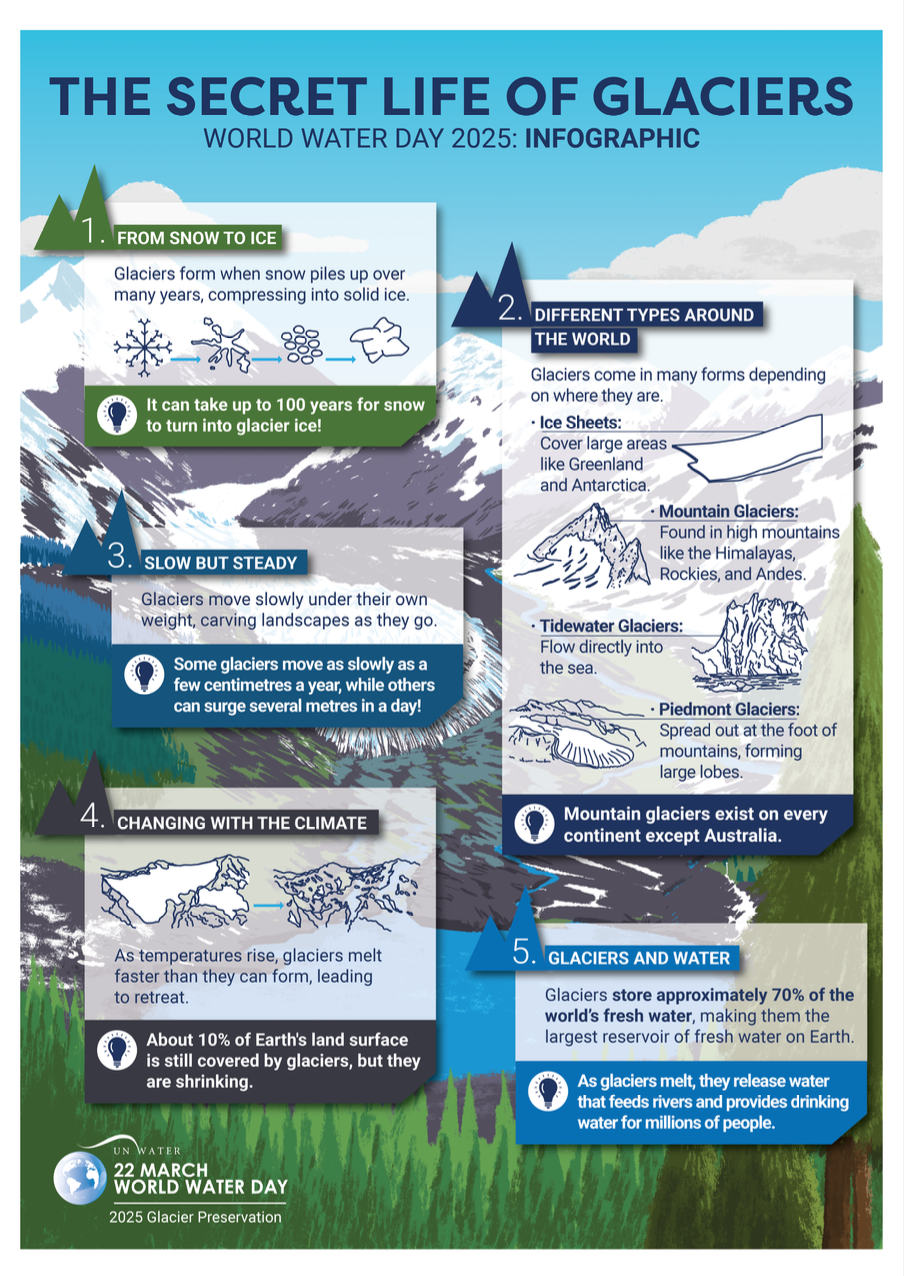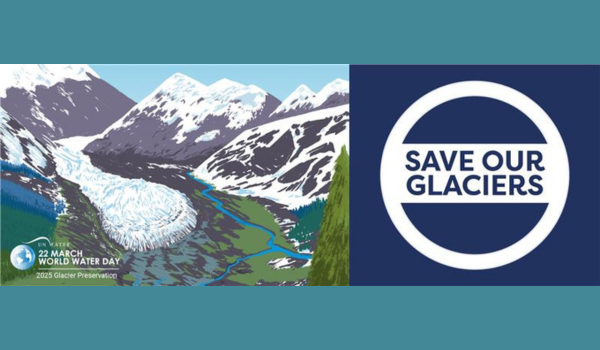Key messages:
-
Glaciers are melting faster than ever. As the planet gets hotter due to climate change, our frozen world is shrinking, making the water cycle more unpredictable and extreme.
-
Glacial retreat threatens devastation. For billions of people, meltwater flows are changing, causing floods, droughts, landslides and sea level rise, and damaging ecosystems.
-
Glacier preservation is a survival strategy. We must work together to reduce greenhouse gas emissions and manage meltwater more sustainably for people and the planet.
The 2025 theme is “Glacier preservation”. In frozen form, glaciers store 2.1% of Earth’s water resources, more than double the amount of Earth’s rivers combined – in fact, they make up three quarters of Earth’s total amount of freshwater and are as such the largest reservoir of freshwater on Earth.
The oldest glacier ice in Antarctica is estimated to approach 1,000,000 years of age, and the oldest ice in Greenland has been around for more than 100,000 years.
Global warming is a significant threat against glacier health and glaciers as a reliable water reservoir – a threat that has been on the rise for the past many years. In 2023, the hottest year on record, glaciers lost more than 600 gigatons of water, experiencing their largest mass loss in the last 50 years.
Promoting Integrated Water Resources Management, GWP approaches water resources as well as governance from a holistic perspective, making glaciers a factor we cannot afford to overlook.
Infographic on the secret life of glaciers:


